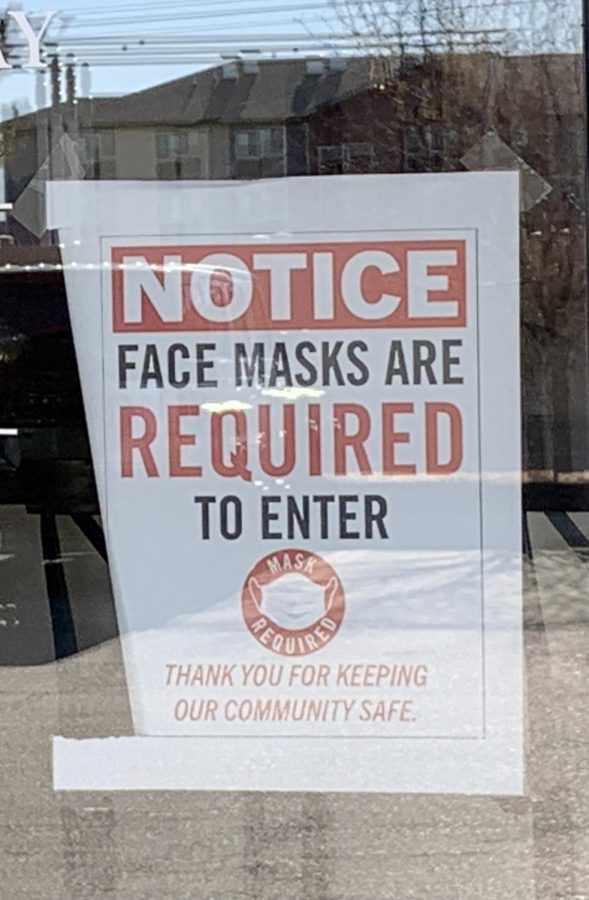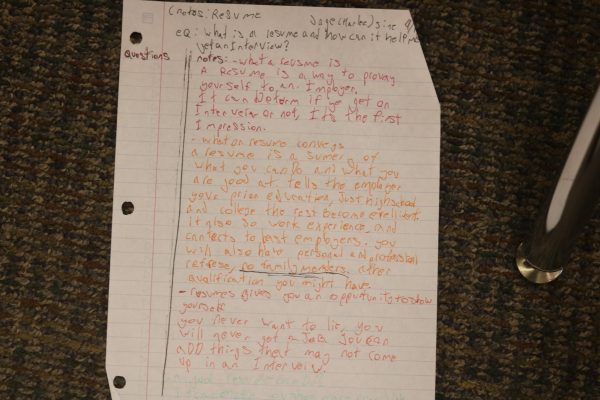COVID 19 and its affect on mental health
Covid19 sign
IT’S NO secret that Covid has affected everything, but many people don’t realize that it has affected their mental health. There’s a taboo around mental health and those who struggle with it. Movies like “The Visit” portray mental health in a negative light. These taboos and movies aren’t correct.
Mental illness covers a broad scope of conditions. Ranging From Bipolar-depression to anxiety. The important thing to remember when talking about mental health is that these conditions are just that, conditions. They are no different than asthma in the sense that they’re a medical issue.
So how does the Corona virus affect mental health? Well, it can split it into two phases, the beginning of lock down, and the present. At the beginning of lock down it affected people because of fear. There were a lot of unanswered questions: When will it end? Will someone I know get it? How severe is it? This caused a lot of anxiety. Also at the beginning, people weren’t used to being home. They struggled to cope with not seeing friends or family. This led to increasing depression, “In this survey study…depression symptom prevalence was more than 3-fold higher during the COVID-19 pandemic than before.” stated Jama network on their website. Kxan also stated on their website, “The CDC report shows that 40.9% of adults say they’ve had at least one mental health effect, including symptoms of anxiety or depression (30.9%), symptoms of trauma or stressor-related disorder (26.3%), and starting or increasing substance use to cope (13.3%).” The CDC did this report on June 24th to June 30th.
The second phase is the present. Businesses are reopened and schools are trying to stay open. Schools are doing two week quarantines to try and contain the virus. Some students think that the breaks are making things harder. Even with life returning to a semi- normal state, the Corona virus is still affecting mental health.
There is an overwhelming dread of what’s going to happen next. The stress of worrying about Covid-19 affects mental health, Mayzee Levet (12) stated, “I have anxiety and worrying over the pandemic and what my senior year will look like makes it worse. I am worried I’ll miss my last year of athletics, clubs, assemblies, dances, and the possibly a normal graduation.”
Mr. Timothy, a freshman success teacher and former HOPE leader, said that to help with mental health, the stigma around it needs to be broken. A lot of times people recognize that they’re not doing well, but won’t admit. Mr. Timothy stated, “The first step is to recognize that you’re not okay. The second step is to admit it.”
A lot of the times people who are struggling with mental health issues won’t get help or talk about it. It’s hard for people to admit to it because of the negative stigmation around it. People with mental health issues are seen as unstable, crazy, or weak. The truth is that being mentally ill is none of those, it’s an imbalance in the body. Depression for example, is a chemical imbalance in your brain. There are ways to cope with depression, and there are antidepressants which stabilize chemicals in your brain. Struggling with mental health issues is like struggling with physical health issues; if someone is having a hard time they should seek help from a professional. A lot of the time they can help.
Mr. Timothy said, “The third step is realizing your thoughts don’t control you.” By this he means, it’s possible to overcome negative thoughts and make decisions that go against them. There is always another option.
“The last step is finding a tactile or kinetic activity that’s safe.” Tactile activities are activities that are relaxing, for example painting. A kinesthetic activity is a physical activity, for example working out. Mayzee Levet (12) stated, “To cheer myself up I listen to music or go on drives.” These are great tactile activities to help.
In conclusion, mental health can be hard, especially in a pandemic. The important things to remember is that mental health issues are just like any other illness. They do not make a person crazy, unstable, or weak, they make them human. If you or someone you know is struggling with mental health then reach out and get help. The national suicide hotline is 800-273-8255. Their website is https://suicidepreventionlifeline.org/.






